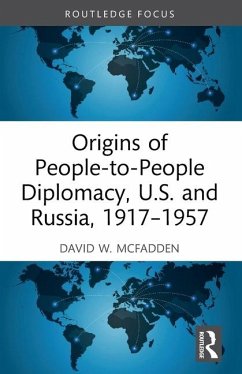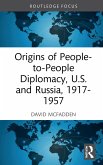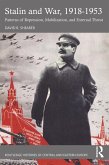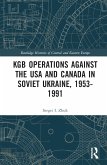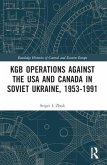Although there have been many studies of U.S.-Soviet diplomacy in the twentieth century, most explorations of people-to-people diplomacy begin in the 1980s and to not take into account the early contacts in the revolutionary period and 1920s. This study explores in greater depth the religious figures, radical activists, entrepreneurs, engineers, social workers, and others in both the U.S. and the Soviet Union who reached across the barriers of ideology and culture and history to forge tentative but real human connections in an attempt to further better understanding between the two countries. All of these efforts prefigured the much more heralded "citizen diplomacy" efforts of the 1980s, which helped end the Cold War.
Bitte wählen Sie Ihr Anliegen aus.
Rechnungen
Retourenschein anfordern
Bestellstatus
Storno

